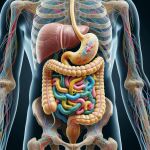Discover the Benefits of Deep Sleep: Necessary Hours and Key Factors
Discover the benefits of deep sleep: necessary hours and key factors to improve your quality of life. Optimize your nighttime rest periods!...
Table of Contents
- The Sleep Cycle and its Phases
- The Importance of Deep Sleep
- The Functions of REM Sleep
- Factors That Affect Sleep Quality
Follow Patricia Alegsa on Pinterest!
The Sleep Cycle and its Phases
Each night, the human body goes through a sleep cycle that is divided into various stages, known as the sleep-wake cycle. This process includes non-REM (rapid eye movement) and REM (rapid eye movement) sleep phases that repeat continuously.
Understanding how these stages work is essential to appreciate deep sleep and its impact on our health.
According to Professor Russell Foster, director of the Sleep and Circadian Neuroscience Institute at the University of Oxford, the cycle begins with non-REM sleep, which is divided into three phases.
The first is a transition between wakefulness and sleep, the second is a state of deep relaxation, and the third is deep sleep, where brain activity shifts to slower waves, crucial for physical and mental recovery.
I wake up at 3 a.m. What can I do to go back to sleep?
Deep sleep not only refers to the number of hours of rest but also focuses on the quality of it.
I wake up at 3 a.m. What can I do to go back to sleep?
The Importance of Deep Sleep
Deep sleep not only refers to the number of hours of rest but also focuses on the quality of it.
During the third stage of non-REM sleep, the body and mind carry out vital processes, such as memory consolidation and problem-solving enhancement.
Foster explains that it is in this phase when the information learned is stored in long-term memory. Moreover, studies reveal that people who sleep adequately have a greater capacity to find innovative solutions.
Deep sleep also plays a protective role in cognitive health. Research from the University of California, Berkeley suggests that this phase may act as a “cognitive reserve factor,” helping to protect against dementia-related diseases.
Deep sleep also plays a protective role in cognitive health. Research from the University of California, Berkeley suggests that this phase may act as a “cognitive reserve factor,” helping to protect against dementia-related diseases.
Lack of deep sleep has been associated with cognitive problems, emphasizing the importance of this stage in mental health.
I solved my sleep problem in 3 months: let me tell you how I did it
The REM phase is equally significant, as it is responsible for emotional processing. During this stage, the brain manages and processes the emotional experiences lived throughout the day.
I solved my sleep problem in 3 months: let me tell you how I did it
The Functions of REM Sleep
The REM phase is equally significant, as it is responsible for emotional processing. During this stage, the brain manages and processes the emotional experiences lived throughout the day.
REM sleep deprivation is linked to higher levels of anxiety and can exacerbate disorders such as post-traumatic stress, making it difficult to process emotions effectively. It is crucial to understand that both deep sleep and REM are vital for maintaining emotional and cognitive balance.
Sleeping becomes a challenge as we age, why?
Sleeping becomes a challenge as we age, why?
Factors That Affect Sleep Quality
Various variables can influence the quality of sleep, from the physical environment to emotional conditions. The resting environment, such as the room temperature and mattress comfort, plays a crucial role in sleep quality.
On the other hand, physical conditions such as sleep apnea and mental health issues can disrupt sleep patterns, causing difficulties in falling asleep or fragmenting it.
Most people need 7 to 8 hours of sleep per night, with 25% of that time dedicated to deep sleep and another 25% to REM sleep. However, this need can vary depending on age and other individual factors. As we age, the amount of deep sleep we require tends to decrease, which may increase the risk of cognitive problems.
Most people need 7 to 8 hours of sleep per night, with 25% of that time dedicated to deep sleep and another 25% to REM sleep. However, this need can vary depending on age and other individual factors. As we age, the amount of deep sleep we require tends to decrease, which may increase the risk of cognitive problems.
Therefore, prioritizing quality sleep is essential to improve quality of life and maintain good physical and mental health.
The importance of sleep to avoid anxiety
The importance of sleep to avoid anxiety
Subscribe to the free weekly horoscope
Aquarius Aries Cancer Capricorn Gemini Leo Libra Pisces Sagittarius Scorpio Taurus Virgo
-
 Why is it so difficult to start training and how to maintain long-term motivation
Why is it so difficult to start training and how to maintain long-term motivation
Discover how to overcome the lack of consistency in training with the strategies of Professor Juan Carlos Luqui: clear goals, professional support, and motivation without frustrations. -
 What does it mean to dream of a helmet?
What does it mean to dream of a helmet?
Discover the meaning behind your helmet dreams: Protection? Risk? Opportunity? Find the answers you're looking for in our article. -
 What does it mean to dream of axes?
What does it mean to dream of axes?
Discover the possible meanings of dreaming about axes in this article. Does it represent a threat? Is it a symbol of strength? Find out here! -
 What does dreaming about rings mean?
What does dreaming about rings mean?
Have you ever wondered what it means to dream about rings? Find out in our article how to interpret this dream and what message your subconscious might be sending. -
 What does it mean to dream of food?
What does it mean to dream of food?
Discover the meaning of your dreams related to food. This article will guide you through different interpretations and their possible implications in your life.
I am Patricia Alegsa
I have been writing horoscope and self-help articles professionally for over 20 years.
Subscribe to the free weekly horoscope
Receive weekly in your email the horoscope and our new articles on love, family, work, dreams and more news. We do NOT send spam.
Astral and numerological analysis
-
 Discover your future, secret personality traits and how to improve in love, business and life in general
Discover your future, secret personality traits and how to improve in love, business and life in general
-
 Online Dream Interpreter: with artificial intelligence
Do you want to know what a dream you had means? Discover the power of understanding your dreams with our advanced online dream interpreter using artificial intelligence that responds to you in seconds.
Online Dream Interpreter: with artificial intelligence
Do you want to know what a dream you had means? Discover the power of understanding your dreams with our advanced online dream interpreter using artificial intelligence that responds to you in seconds.
-
 What does it mean to dream of circus?
What does it mean to dream of circus?
Discover the fascinating world of dreams with our article on What does it mean to dream of a circus? We'll explore the symbolisms behind this dream experience and what messages your subconscious might be sending. -
 Goodbye antibiotics! Vaccines and bacteria ally in your gut
Goodbye antibiotics! Vaccines and bacteria ally in your gut
A revolution in the gut! Oral vaccines and good bacteria join forces to fight infections without antibiotics. Goodbye, pills; hello, natural health. -
 What does it mean to dream of using a microwave?
What does it mean to dream of using a microwave?
Discover the fascinating world of dreams and their meaning. Find out what the use of a microwave represents in your dreams with our article! -
 What does it mean to dream of a fight?
What does it mean to dream of a fight?
Discover the meaning behind your fight dreams and how they can affect your life. Find tips to resolve conflicts and achieve inner peace, read our article now! -
 What boosts happiness in women, according to science
What boosts happiness in women, according to science
Discover the habit that boosts happiness in women, according to a Harvard scientist. It improves emotional well-being and promotes a healthier life. -
 What does it mean to dream of turkeys?
What does it mean to dream of turkeys?
Discover the fascinating world of turkey dreams in this article. Discover their meaning and how they affect your life - don't miss it! -
 What does it mean to dream of doorbells?
What does it mean to dream of doorbells?
Discover the meaning behind your dreams with doorbells in this article. Find tips and clues to help you better understand your dreams and make more informed decisions in life. -
 What does it mean to dream of wood?
What does it mean to dream of wood?
Discover the meaning behind your dreams with wood. Does it symbolize a connection with nature or does it represent an obstacle in your life? Read our article now! -
 Find out what each element of the Zodiac believes. Surprising revelations!
Find out what each element of the Zodiac believes. Surprising revelations!
Discover the fascinating beliefs of each zodiac sign based on their element. Learn how they influence your personality and destiny. -
 The fascinating hidden meaning of your life according to your Zodiac sign
The fascinating hidden meaning of your life according to your Zodiac sign
Discover how your horoscope can guide you to a more fulfilling life. Personalized reflections for each astrological sign. -
 What does it mean to dream of musical notes?
What does it mean to dream of musical notes?
Discover the meaning of dreaming of musical notes in this article. What message is your subconscious transmitting to you through music? Find out here! -
 The reason why aliens have not contacted us yet
The reason why aliens have not contacted us yet
Discover if there is life in the universe: from microorganisms in the solar system to civilizations in distant galaxies. Where is the alien? -
 What does it mean to dream of caresses?
What does it mean to dream of caresses?
Discover the meaning behind dreams with caresses and how they can reflect your emotions and relationships - explore new perspectives on your dreams today!